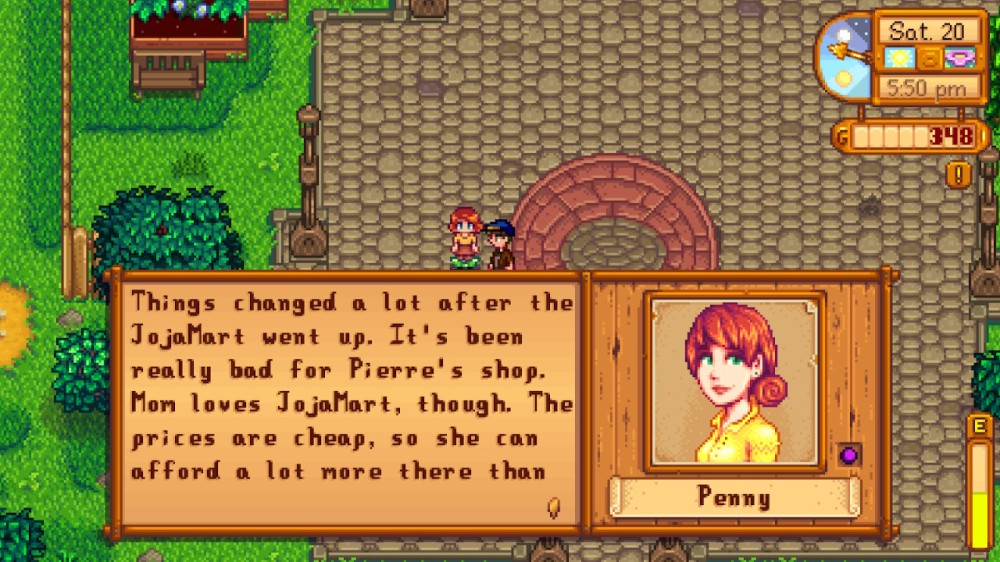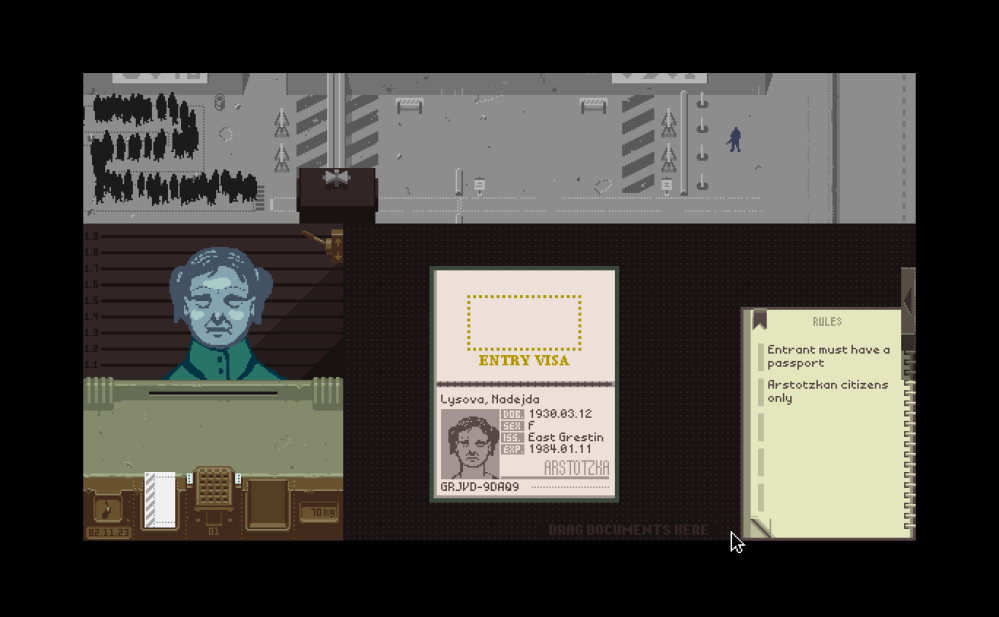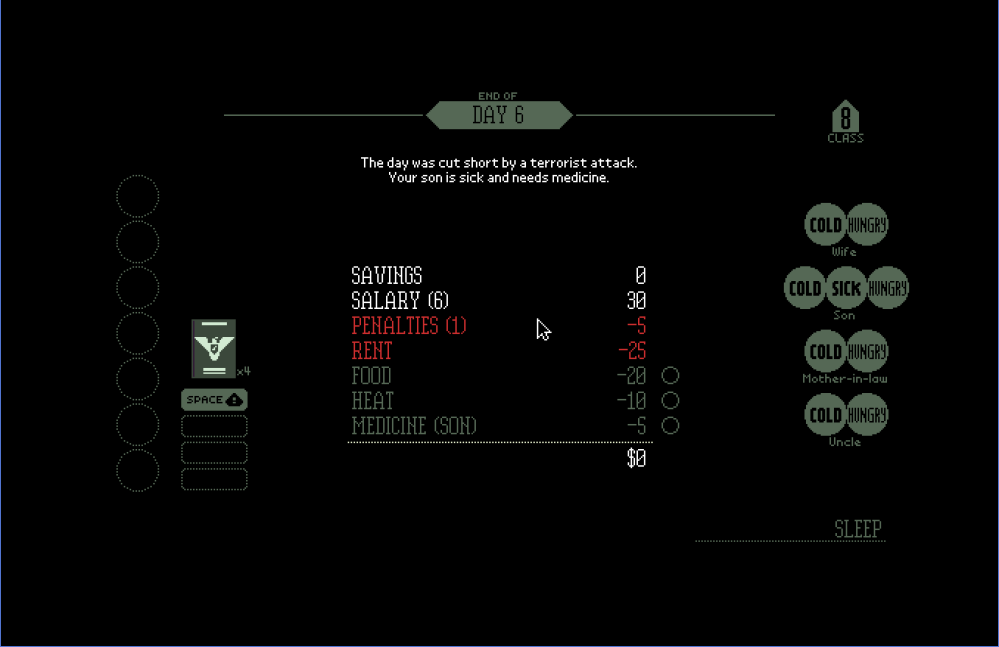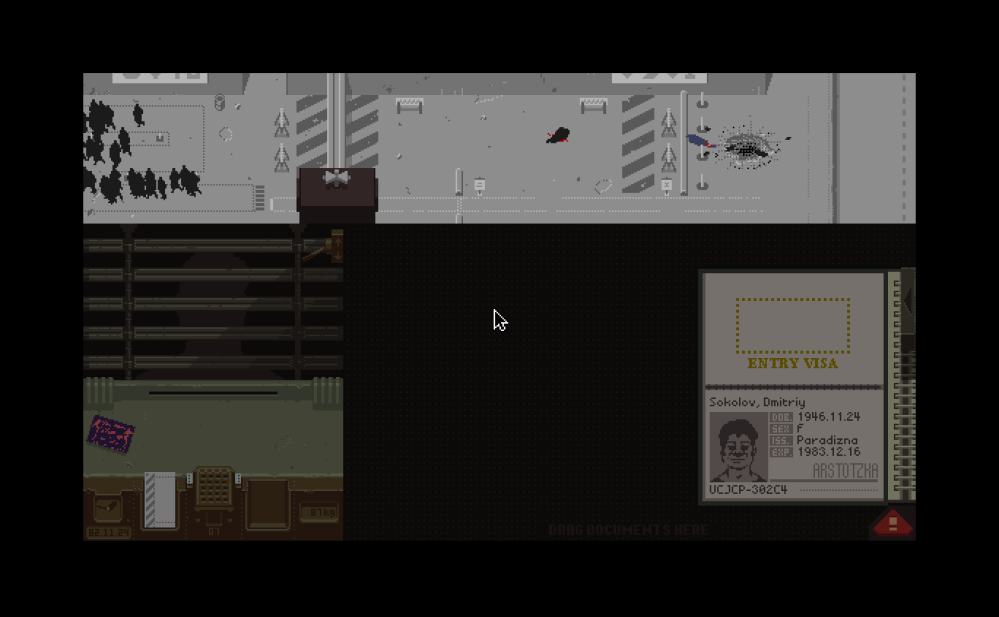Last time I talked about the video game “Papers, Please” and how it can make you understand the path to dehumanizing totalitarianism. That was a bit heavy. This time I want to talk about a game that is on the short list of games that I consider my happy place, Stardew Valley.
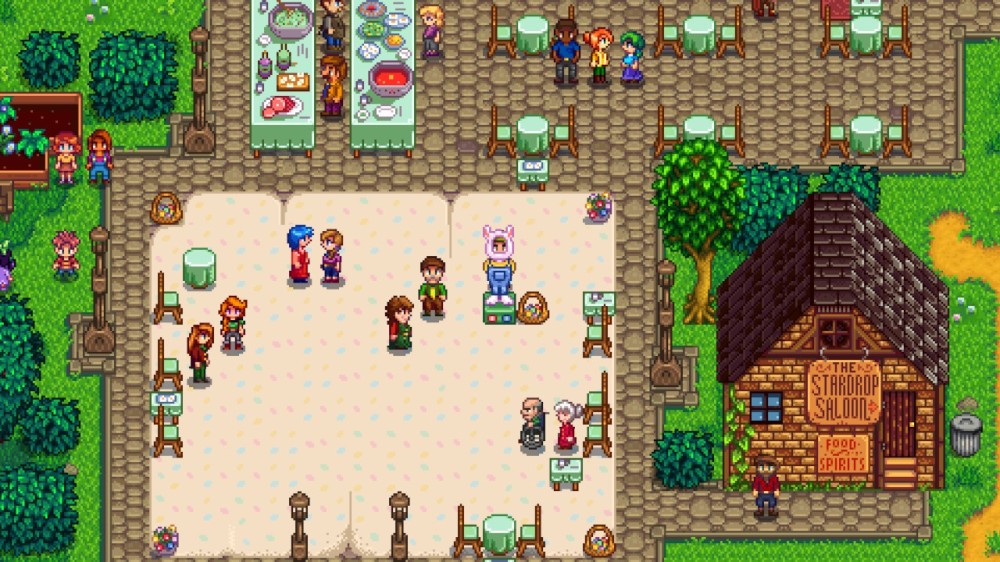
On its surface, the only goal in Stardew Valley is to grow crops, raise animals, sell what you make and expand your farm. Starting out, your farm needs a lot of work. Clearing it feels rewarding as you slowly create more farmable land, then paths around the property, and locations for barns and chicken coops where you raise livestock. Yet you can only do so much in a day do to time and energy. So you can’t run around endlessly raising cash (like in Animal Crossing).
Meanwhile you are befriending the townspeople and learning their stories and concerns. Many, like the local business owner that barely has time for his family because a Wal-Mart like mega store opened nearby, express similar thoughts to what you probably hear in real life. There are overprotective parents, hidden loves, and family dramas. While this unfolds, you may grow a relationship with a towns person, marry, and even raise a child with them. (In an upcoming release you can even be called out if you date around too much!)
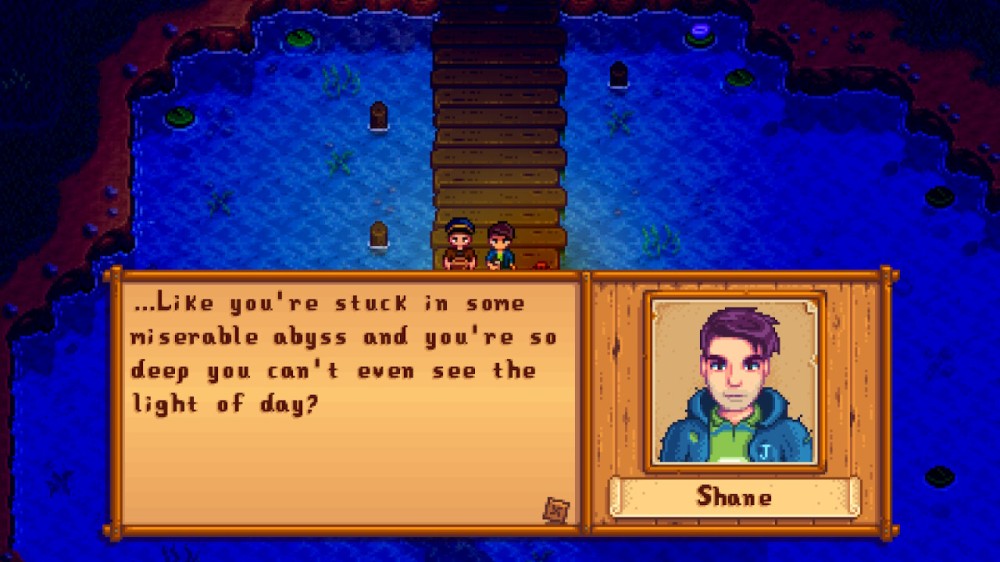
As you grow your farm, family, and town you are awarded with the most heart warming cut scenes. Many of these, like playing a co-op game with Abigail or watching the Moonlight Jellies sail past are deeply memorable to me. I am often delighted when a scene starts as I go about my day, looking for the little tender revelation of one of the character’s lives.
There is magic in Stardew Valley. A wholesomeness and warmth that is refreshing and revitalizing. This is a game that reminds me that life, much like the farm, may need a lot of tending, but what you put into it pays back in dividends.
